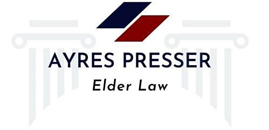Estate Planning
Estate Planning involves the organization and management of an individual’s assets, properties, and affairs during their lifetime and after death. The primary goals of estate planning are to ensure that a person’s wishes are carried out, their assets are distributed according to their intentions, and their loved ones are provided for in the most effective manner. Estate planning typically involves the use of legal tools and documents to achieve these objectives. Here are some key components commonly included in estate planning:
- Last Will and Testament (a “Will): A Will is a legal document that outlines how a person’s probate assets should be distributed after their death. Probate assets are those assets without a surviving joint owner, without a named beneficiary, or not part of a trust. A Will may include other instructions such as the appointment of guardians for minor children.
- Trusts: A Trust is a legal arrangement that allows a third party, a Trustee, to hold and manage assets on behalf of beneficiaries. A Trust can provide long-term control over the distribution of assets and continuity of the management of the assets after the Grantor (who established the Trust) has passed away.
- Power of Attorney (“POA”): A POA is a legal document that grants someone (the “Agent”) the authority to make financial or legal decisions on your behalf. A POA is essential if you become incapacitated and unable to manage your own affairs for a short or long period of time. You must execute a POA when you are of sound mind and fully understand the document you are signing. A POA cannot be established after you lack capacity, at which point, a guardianship may be necessary to appoint someone to make financial or legal decisions for you. *Online POA forms are often incorrect and may not be valid in Pennsylvania. Please do not rely on online POA forms!
- Medical POA: A Medical POA designates a person (the “Agent”) to make healthcare decisions on your behalf if you become incapacitated. A Medical POA can also give the Agent authority to designate your place of residence, including arranging for your care in a nursing home.
- Living Will: A Living Will is a specific type of advance directive that outlines your preferences regarding end-of-life care and medical treatment, in case you are unable to communicate your wishes. A Living Will is typically reserved for situations where you are in a terminal condition or a permanent comatose state.
- Beneficiary Designations: In addition to Wills and Trusts, it is important to ensure that the beneficiary designations on financial accounts, life insurance policies, and retirement plans accurately reflect your wishes for the final distribution of those assets.
- Business Succession Planning: If you own a business, succession planning is an essential part of your estate plan. You must develop a plan for the smooth transfer of ownership or management, both during your lifetime and after your death.
Ensure a secure future with comprehensive estate planning services from Ayres Presser Elder Law. Our experienced team is dedicated to preparing personalized estate plans that safeguard your assets and legacy. We will guide you through the process and offer peace and mind for you and your loved ones. Contact us today for an initial Consultation and take the first step toward a secure and well-orchestrated estate plan.

